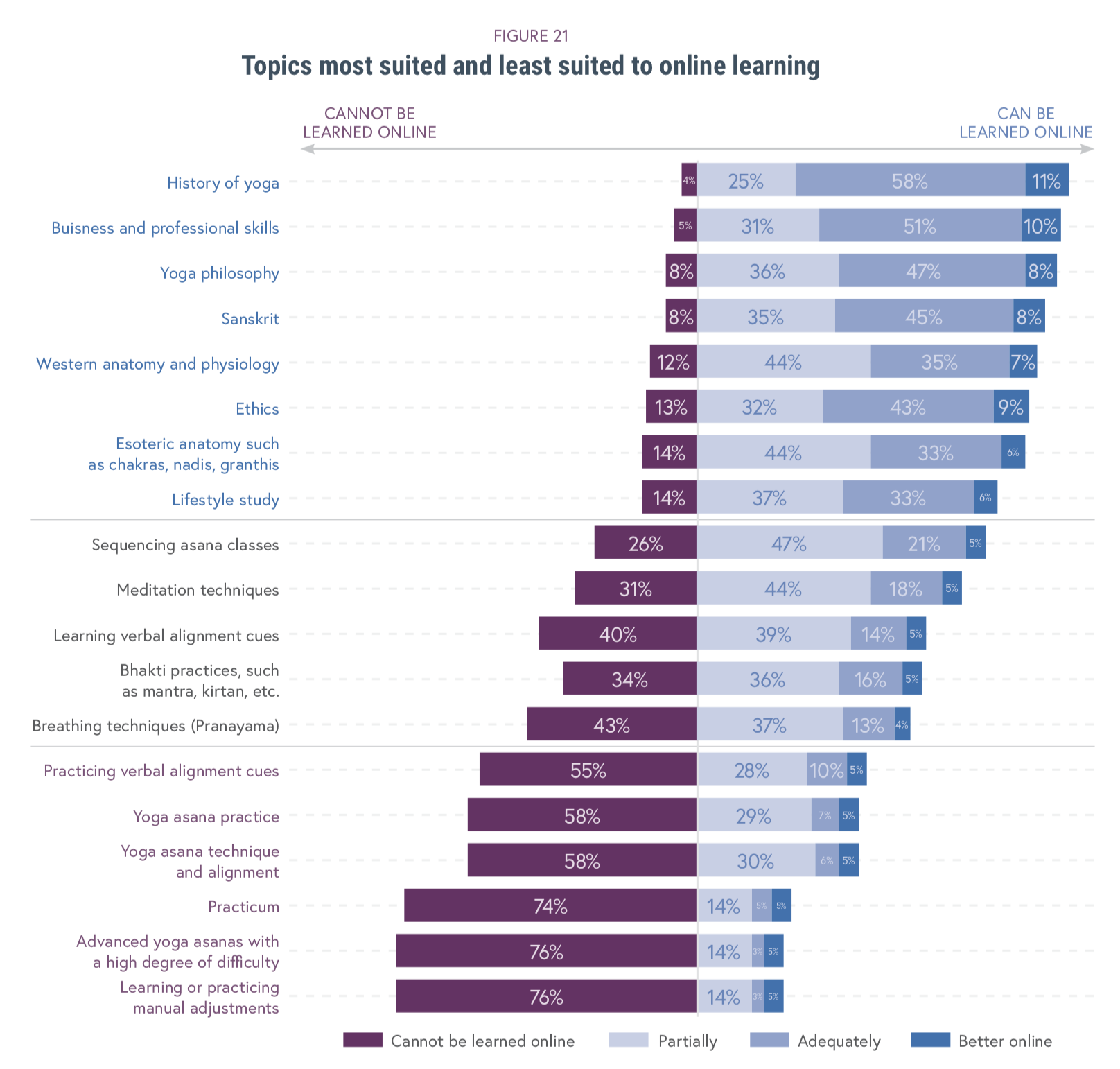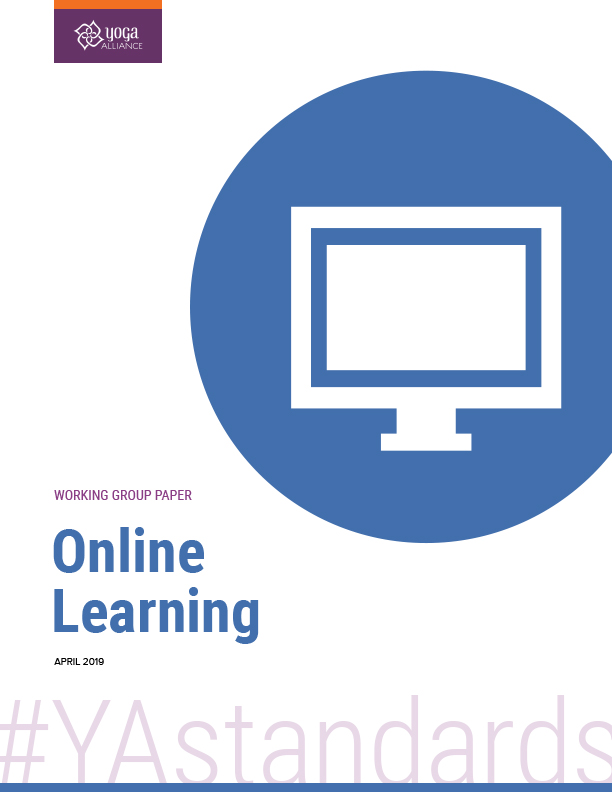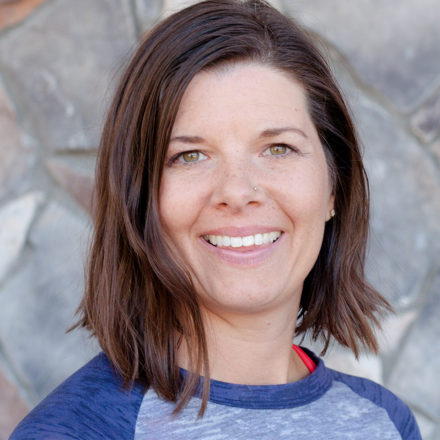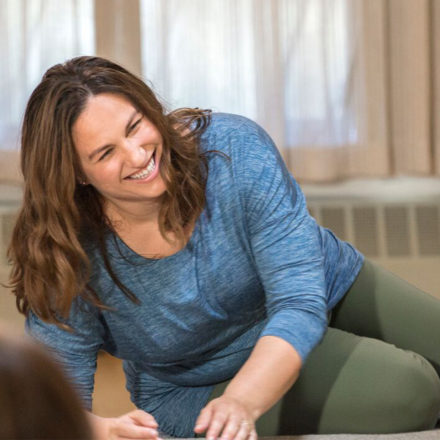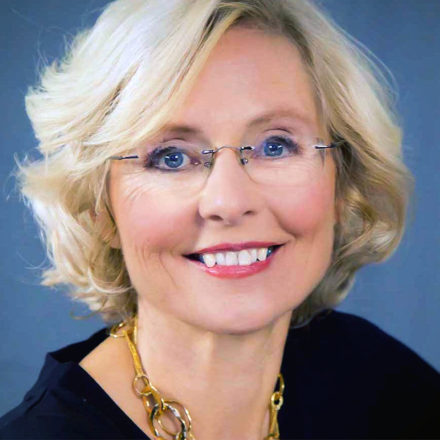
THE CONVERSATION: What is the appropriate role of online education in yoga? Are there certain subject areas that are appropriate or inappropriate to teach online? What sort of controls must be in place to guarantee quality online education? What role does online learning play in inclusivity?
WHAT WE LEARNED:
Most yoga professionals feel that there is a role for online learning in the 21stcentury with respect to yoga teacher training. This came through loud and clear via our survey, the listening tour, the virtual town halls, and the working group sessions. That said, there is disagreement on which topics are best suited for online learning, and there is conversation around Teacher Trainer qualifications for being able to deliver content online.
As we saw via our 12,000-respondent survey, there is support for topics such as the history of yoga, the business of yoga, yoga philosophy, Sanskrit, anatomy and physiology, and yoga ethics being delivered adequately online. There is less support for topics such as those pertaining to asana – the practice of, associated techniques and alignment principles, verbal and physical adjustments, and advanced poses overall. Read more here.
Through the working group specific to Online Learning, a few recommendations “rose to the top”:
- Yoga Alliance should create standards for online learning, approaching it with a blended approach
- Yoga Alliance should vet all continuing education courses currently being offered online
- Teacher Trainers should take a pedagogy course related to delivering content online
- Registered Yoga Teachers (RYTs) should take an online course pertaining to an ethical commitment prior to acceptance into Yoga Alliance to include Scope of Practice* and Code of Conduct**
*For more information on the key inquiry of Scope of Practice, visit here.
**For more information on the key inquiry of Code of Conduct, visit here.
To learn more about this working group’s recommendations, please download the Online Learning Working Group Paper here. As a reminder, Yoga Alliance brought together a diverse spectrum of expert advisory voices to maximize the perspectives and resources within this area of inquiry. They represented one stream of input in the process, albeit an important stream. We thank them for their participation and dedication.
Note: these working group papers provide expert recommendations to Yoga Alliance and the yoga community for consideration as the Standards Review Project continues. They are not prescribed actions but rather insights from an experienced and dedicated group of subject matter experts. They were written by an independent third party. At this point in time, no decisions have been made regarding standards updates, and we welcome and encourage your feedback and comments regarding the entirety of the SRP process.

